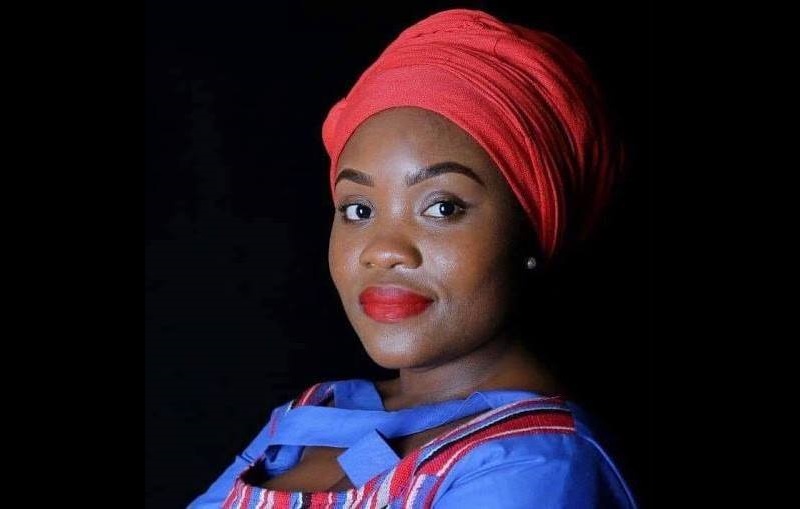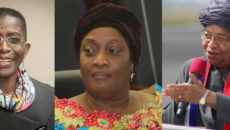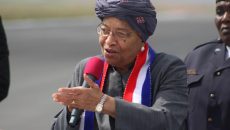January 16, 2006 was an unprecedented victory that altered the status quo for women in Liberia. It wasn’t only shocking that a woman rose to power in one of the world’s most patriarchal nations, it was also the extraordinary role that women leaders played in ending the civil war. President Ellen Johnson Sirleaf’s victory meant an awakening to women’s role in society and a new dawn for Liberian women. Ellen, the most powerful person in Liberia, was evidence of what happens when women recognize their inherent potential and see themselves as a part of the solution.
I was 12-years-old when Ellen won, but that event stirred up sentiments about what would happen if more women ran for public offices. I hoped to see more replicas of Ellen Johnson Sirleaf. But to my dismay, women accounted for only 10.2 percent of successful candidates in the 2011 elections, and between 2005 to 2015, only 11.9 percent won.
My prayers were answered when Cornelia Kruah-Togba announced her candidacy for representative in Montserrado’s 13th district. I do not know Cornelia personally, but the many people who talk about her always confirm that she is a natural leader, exceptionally knowledgeable, hardworking, and compassionate.
In our pro-poor times, one cannot deny that we desperately need leaders with expertise in governmental affairs – leaders who understand the fragility of our state and the pressing economic issues we face. In the last five years, Cornelia has developed that expertise at the highest level: she served as program assistant within the President’s Delivery Unit at the Ministry of State for Presidential Affairs, executive assistant to the minister of public works, and chief of staff to the minister of education. In all these positions, she served with distinction and was recognized and recently awarded the Star of Africa by President Ellen Johnson Sirleaf.
Cornelia also has experiences outside of government, a critical trait given that public service increasingly cuts across diverse sectors. She runs recreational programs that foster girls education and youth empowerment. Her organization, Young Women’s Empowerment Network, is an NGO that aims to create a community of talented women leaders for professional excellence in high profile careers in Liberia. Every two years, YOWENET recruits 10 young women between the ages of 17-30 and empowers them to implement community service projects across Liberia. These projects are implemented by teams that include both male and female youth, enforcing a sense of gender equality.
Although the fact that Cornelia is a young woman may limit the support she receives, she is, however, the most qualified candidate in the district. She took advantage of opportunities afforded to her to materialize opportunities for her peers. Not only is she a role model for many women in her community, but Cornelia also provides scholarship and professional development coaching to young people. She has impacted more than 30 students through one-on-one interaction and support, most them residents of the 13th district.
As a young Liberian woman, I know the insurmountable distractions and hurdles that hinder us from reaching our full potential – teenage pregnancy, dropping out of college for financial reasons, forced early marriages, prostitution, and poor education. Nevertheless, Cornelia beat these obstacles and today, by electing her, she can utilize her platform and prioritize women empowerment. This can be done through increasing vocational training opportunities for girls at Monrovia Vocational Training Institute.
After Cornelia, I want to see more women participating in politics, which in turn will influence the next generation of female leaders. To do so, we need to alter the way we socialize young girls because political scientists have attributed the limited female political participation to the environment girls are exposed to.
Socialization around traditional gender roles means girls are taught to be caretaker and mothers while boys are taught to be leaders and achievers. Girls grow up to see political organizations and institutions inherently occupied by men, which enables a system of male-only participation and that leads women to have less interest in pursuing politics. Even after Ellen Johnson Sirleaf, this political socialization is still ingrained Liberia’s politics, ushering in fewer and fewer women into public offices.
Why is this important? In addition to the feminist rhetoric of equality, we must realize that great leadership potentials go unnoticed because, for one, many women are not contesting in politics and two, even if they surpass internal struggles to announce their bids, we prioritize male leaders over them.
While I am very excited about Cornelia’s candidacy, her innovative policy ideas, boundless energy, and what she could mean for women and young people, we need to do more to encourage the political participation of young people and get them into political offices.
While Ellen’s presidency did set the bar for Liberian women, I hope the uniqueness of Cornelia’s candidacy will incite change in our political culture allowing qualified young men and women to serve our country.



